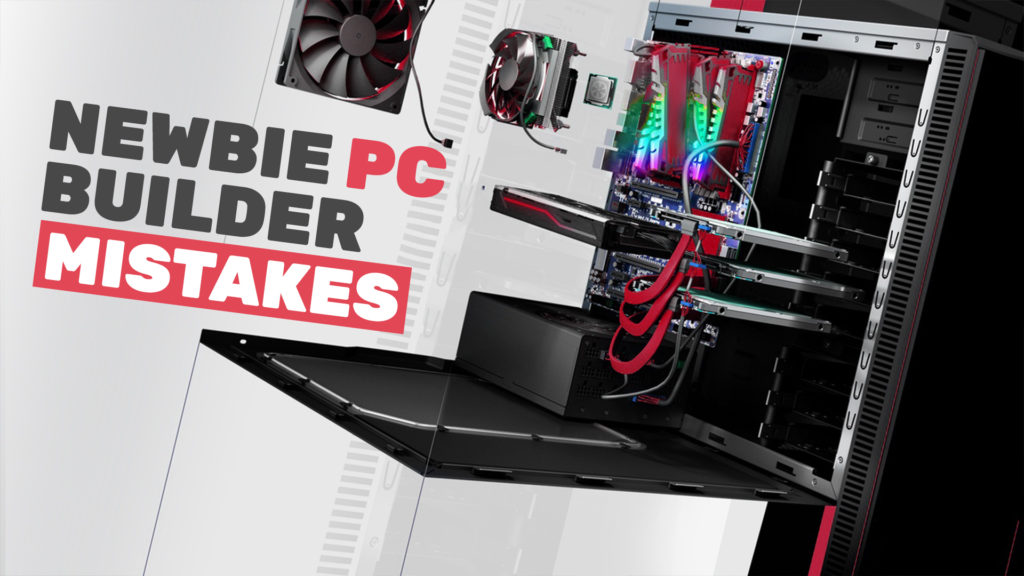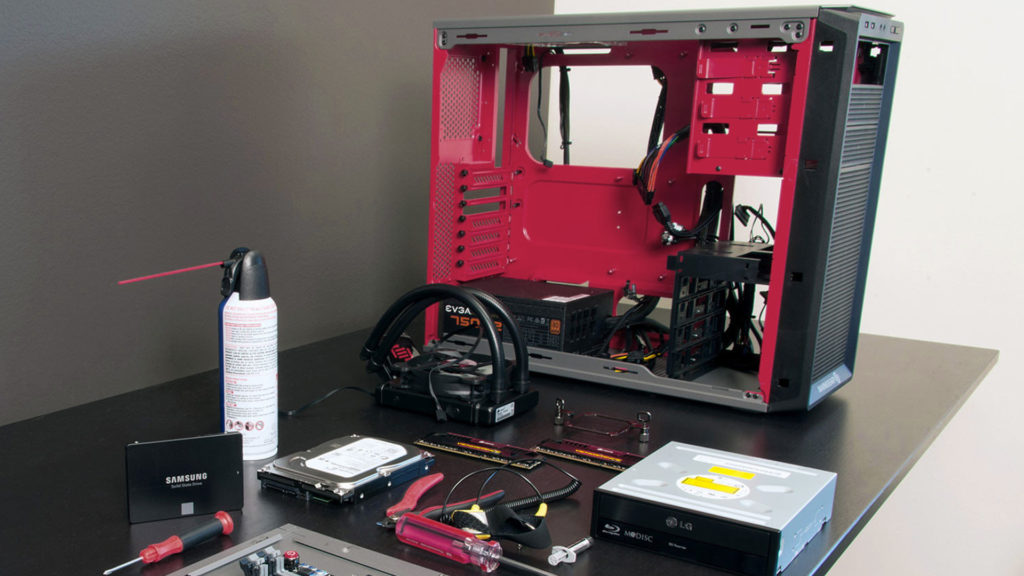
Common Mistakes First-Time PC Builders Make
So you’re looking to build your first gaming computer, needless to say, there is a lot you need to think about.
Start out with a functioning used PC. If you are patient, you will find a PC that someone sells after upgrading. They will get a new PC and won’t care about their old one and sell it for a third or a quarter of what it would cost if assembled new. Depending on your region, these great offers pop up once or twice a month, maybe once every two months, but they happen.
From choosing components to assembling your new computer to installing (and uninstalling) programs and software once it’s up and running… there is a lot of mistakes to avoid including:

- Not factoring small things into your budget – So you make a $2,000 dollar computer but did you plan for incidentals? You’ll want a nice screen to display everything, right? Some good speakers for surround, immersive sound? A gaming mouse and keyboard if you don’t already have one? Think about the whole set of stuff you need for your PC ecosystem.
- Ordering stuff too piecemeal – So you have a concept for a PC and you want to build it off a certain platform. Let’s say you see a good deal on the i7–6700k and then wait for a good deal on the motherboard. A month passes and you’ve found your good deal on, say…. An MSI Z170A Gaming 7. And then you wait for another month to buy your RAM… Another to buy your SSD… All because you didn’t save up enough money to do it all at once. Guess what? Your initial warranty expired on most of your parts so you can’t just return them to the seller. If you find a problem with any part you have to go through the much more painful manufacturer route. You’ve also wasted months of warranty by letting your parts sit around.
- Not considering local shops – There are a lot of local stores that will offer price matching or competitive prices. Look at their policies and see if they have good reviews and policies. If they do, try to shop with them. It’s much easier to drop by to exchange a faulty part than it is to mail it in. Sometimes they can also help you diagnose problems for free if you ask them really nicely.
- Not thinking about your usage patterns and expansion options – Do you have a new phone with a USB Type-C connector? Got a bunch of Bluetooth stuff you wanna connect to your computer for whatever reason? Do you have 10 external hard drives or plan to have 5 internal ones? Make sure you get enough connectors and stuff for your habits. It’s annoying to have to get adapters and all that stuff later and it detracts from the beauty of your computer. Otherwise, stuff like whether you care about good audio (maybe you should get an audio card, but did you leave enough space and ports on the board?) If you might want to do SLI or crossfire in the future, do you have ports or space for that? If you have a little bit of extra budget, maybe you want to consider investing in a better board or bigger case just in case you need the extra connectors or space.
- Not getting help when necessary – It’s your first build. Don’t be afraid to look at the manual for the parts. Don’t be afraid to ask questions. Don’t be afraid to ask for help online or at a shop. If you run across a problem and you don’t know which hardware part is causing it, a PC repair shop will have tools to test it but it’ll be much harder for you to reach a conclusion because you don’t have the spare parts to swap out and test. That said, there’s a certain satisfaction when you find the problem and eliminate it. But it’ll probably cost you some time.
- Forgetting heat – Heat is basically the number one enemy of performance for higher-end computers, which is why people use liquid cooling and all kinds of fancy solutions. It’s why the top overclockers in the world use liquid nitrogen sometimes to do their overclocking. Get a good fan or liquid cooling system.
Conclusion

Assembling a completely new build without spare parts for troubleshooting can be very frustrating. Custom-built PCs offer up some of the best performance per dollar and the ability to get exactly what you want. While the task might seem intimidating at first, the result is often worth the trouble, time, and effort.